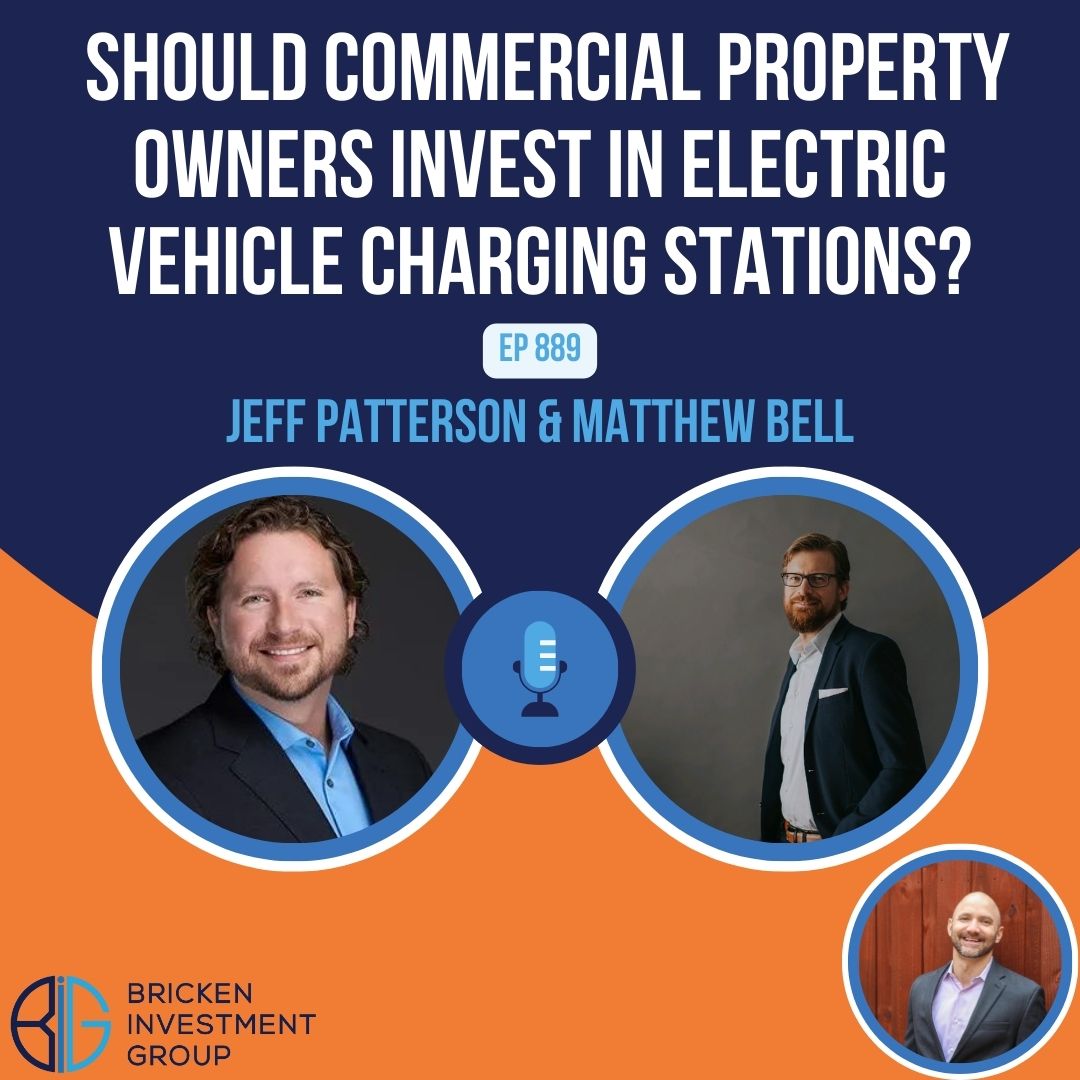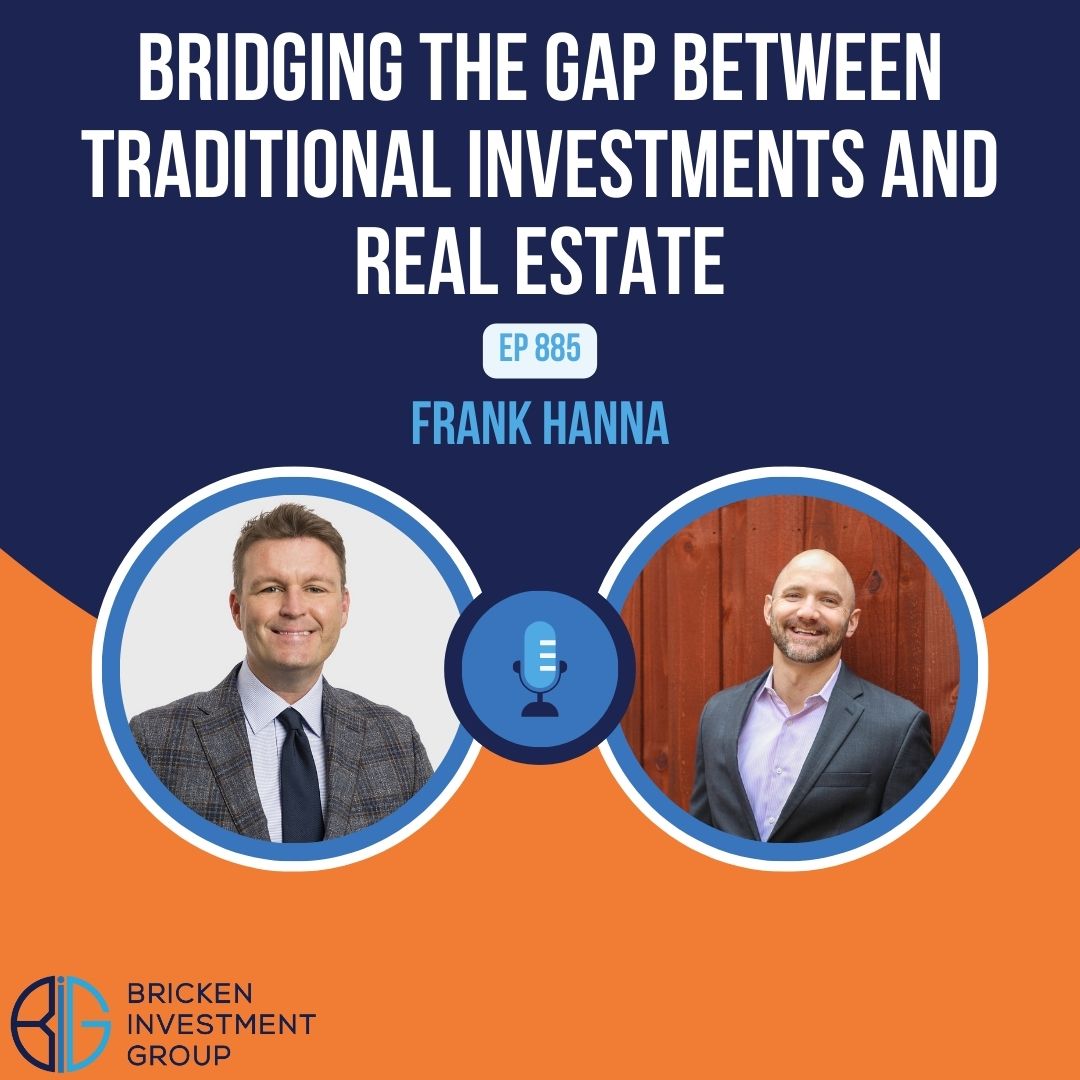How to Get Money for Real Estate Deals Without Relying on Traditional Money Lenders
Description
Today's guest is Jay Conner.
Jay Conner has been buying and selling houses since 2003 in a town of only 40,000 people with profits now averaging $78,000 per deal. He has Rehabbed over 475 houses and been involved in over $118 Million Dollars in Transactions.
Show summary:
In this episode, Jay Connor discusses the advantages of using private money and private lending over traditional banking methods for real estate investments. He shares his personal success story of raising $2.15 million in private funds within 90 days. Jay also highlights the importance of mastermind groups, building a strong team, and the transition from mobile homes to single-family houses. Additionally, Jay promotes his book "Where to Get the Money Now?" which offers a step-by-step guide to funding real estate deals, and he provides a special offer for listeners to receive an autographed copy.
--------------------------------------------------------------
Mastermind Groups (00:00:00 )
Background and Journey (00:00:45 )
Transition to Private Money (00:02:22 )
Deployment of Private Money (00:03:49 )
Protection for Private Lenders (00:04:38 )
Applicability to Commercial Real Estate (00:05:59 )
Building a Strong Team (00:06:52 )
Automation and Delegation (00:10:03 )
Efficiency and Growth (00:11:48 )
Raising Capital Strategies (00:14:31 )
Raising Private Money (00:16:35 )
Mindset and Rejection (00:21:40 )
Book Recommendation (00:22:24 )
Offer for Listeners (00:22:46 )
The giveaway (00:22:55 )
Raising money principles (00:23:39 )
Thank you and closing (00:23:56 )
--------------------------------------------------------------
Connect with Jay:
Web: www.JayConner.com
Facebook: https://www.facebook.com/jay.conner.marketing
Linkedin: https://www.linkedin.com/in/privatemoneyauthority/
Free Book: https://www.jayconner.com/book
Connect with Sam:
I love helping others place money outside of traditional investments that both diversify a strategy and provide solid predictable returns.
Facebook: https://www.facebook.com/HowtoscaleCRE/
LinkedIn: https://www.linkedin.com/in/samwilsonhowtoscalecre/
Email me → sam@brickeninvestmentgroup.com
SUBSCRIBE and LEAVE A RATING. Listen to How To Scale Commercial Real Estate Investing with Sam Wilson
Apple Podcasts: https://podcasts.apple.com/us/podcast/how-to-scale-commercial-real-estate/id1539979234
Spotify: https://open.spotify.com/show/4m0NWYzSvznEIjRBFtCgEL?si=e10d8e039b99475f
--------------------------------------------------------------
Want to read the full show notes of the episode? Check it out below:
Jay Conner (00:00:00 ) - My business started to skyrocket, like overnight when I started joining really good mastermind groups, mastermind groups of where I, fellow like minded individuals are in real estate investing and have been doing it a while. I'm not listening to advice from somebody that hasn't even done their first deal yet, right? I'm listening to advice from fellow mastermind members that are doing 50 plus deals a year. Welcome to the how.
Intro (00:00:33 ) - To Scale Commercial Real Estate show. Whether you are an active or passive investor, we'll teach you how to scale your real estate investing business into something big.
Sam Wilson (00:00:45 ) - Jake Connor has been buying and selling houses since 2003, in a town of only 40,000 people, with profits now averaging $78,000 per deal. He has rehabbed over 475 houses and been involved in over $118 million in transactions. Jay, you've been on the show before. It's really great to have you back for round two. Thanks for coming on today, Sam.
Jay Conner (00:01:08 ) - Thanks so much for having me back. Talking about my favorite subject in topic. And that's private money and private lending, because quite frankly, that in and of itself has had more of an impact on our real estate investing business ever since 2003.
Sam Wilson (00:01:24 ) - Absolutely. Jay, I asked this question to every guest that comes on the show, and so I have to ask it for the listeners maybe that didn't hear your first episode in 90s or less. Where did you start? Where are you now? How did you get there?
Jay Conner (00:01:40 ) - So where did I start? I grew up in the housing business with my dad, Wallace Conner, and at one time he was the largest retailer of mobile homes, manufactured housing in the nation. So I grew up, you know, being around a family that was that helps people own a home. So in the early 2000, the consumer financing for that product went away across the nation. And I knew if I ever wanted to, if I ever got out of mobile homes, I wanted to get into single family houses. Now I've done commercial as well. I've done condominium developments and, shopping centers. But my focus has been single family houses. So how did I get to where I am today? Well, I'll tell you.
Jay Conner (00:02:22 ) - In short, from 2003 to 2009, I relied on institutional money and local banks to fund our real estate deals. And in 2009 January 2009, I had a rude awakening. I was on the phone with my banker, and I learned that my line of credit had been closed with no notice. January of 2009 I'd done a ton of deals with my banker, and of course, during that time, they were not loaning out money to real estate investors anymore. So I knew I had to find a better and quicker way to fund my real estate deals. So right after that, I was introduced to this concept of private money private lending, self-directed IRAs. I'd never heard of any of that stuff. And so in less than 90 days, I raised $2,150,000 in private money and lending from individuals through connections that I have and had. And since that time, I've not missed out on a deal for not having the money.
Sam Wilson (00:03:27 ) - That is fantastic. It, $2.15 million in less than 90 days. Yes, you had the context or contacts to do that, but what did you have them invest into? I mean, it's one thing to go out and say, hey, I have, you know, this is the thing we're doing, but where did that money get deployed so rapidly.
Jay Conner (00:03:49 ) - In single family houses? So I had houses under contract to buy and close on before I knew that, you know, that my, my line of credit had been shut down and so but I only needed, $500,000 or so to take those houses down. So the other $1.5 million we started putting to use on other deals that we were negotiating on, you know, over that 90 day period.
Sam Wilson (00:04:20 ) - Got it. One of the things I think, that you've always stressed to your lenders is they are direct investors. Their name is on the they, you know, not just a promissory note, but they hold the deed of trust or I guess, you know, depending on what state you're in, I'm not sure how North Carolina does it or the mortgage. is that still the case today?
Jay Conner (00:04:38 ) - That is the case. Everything that we do with single family houses is what we call one offs. So what do we mean by a one off? Well, a one off is that you've got a private lender, which by the way again we're not talking institutional money.
Jay Conner (00:04:51 ) - These are individuals. These are human beings just like you and me, using their investment capital and or their retirement funds to invest in our deals. And so you have a private lender or maybe a couple of private lenders that are funding a single family house. And as you said, they get the problem. They get the same protection as a bank, right? They get a promissory note, they get the mortgage or the deed of trust here in North Carolina that collateralize that note. So we're not borrowing unsecured funds. They get named as the mortgage on the insurance policy. That's another layer of protection. We name them also as additional insured on the title policy. So we give them
























